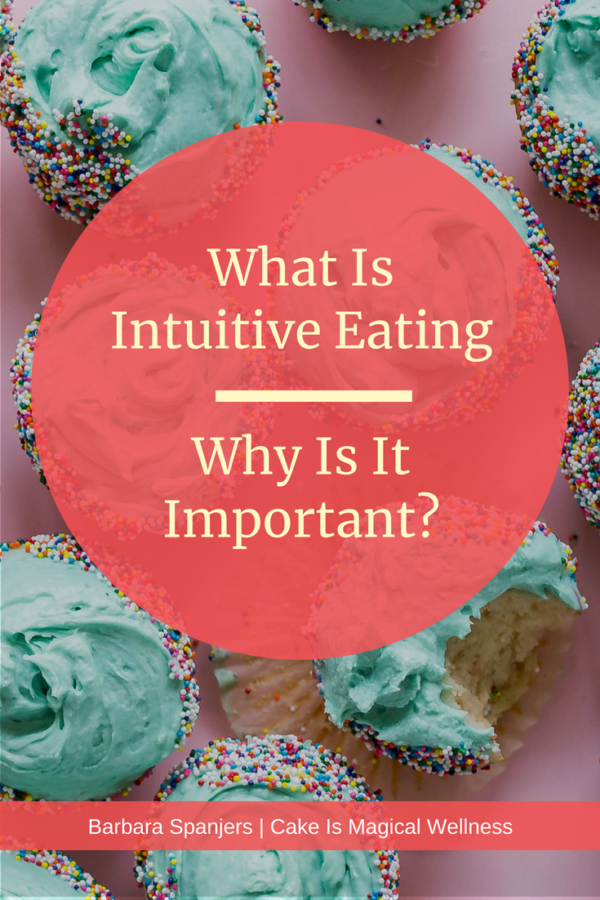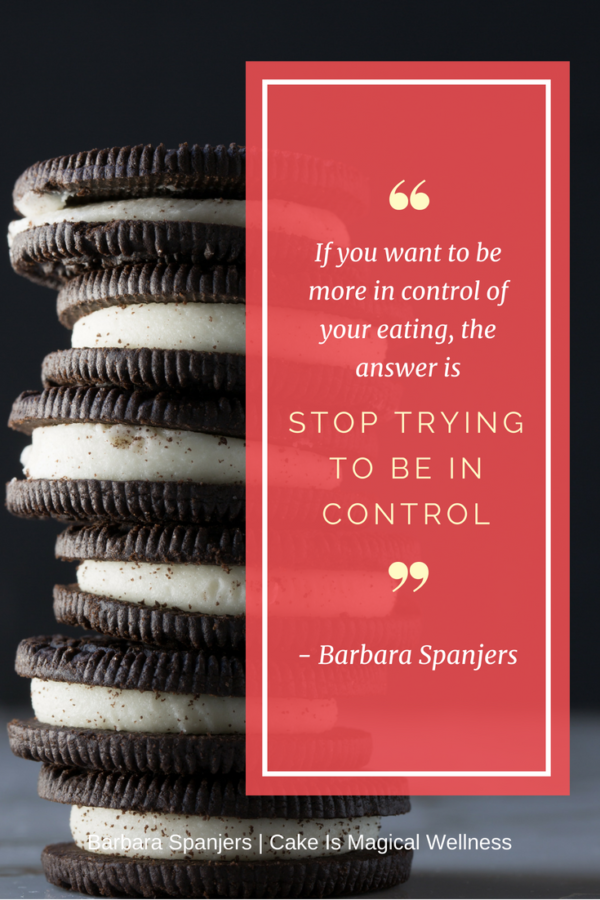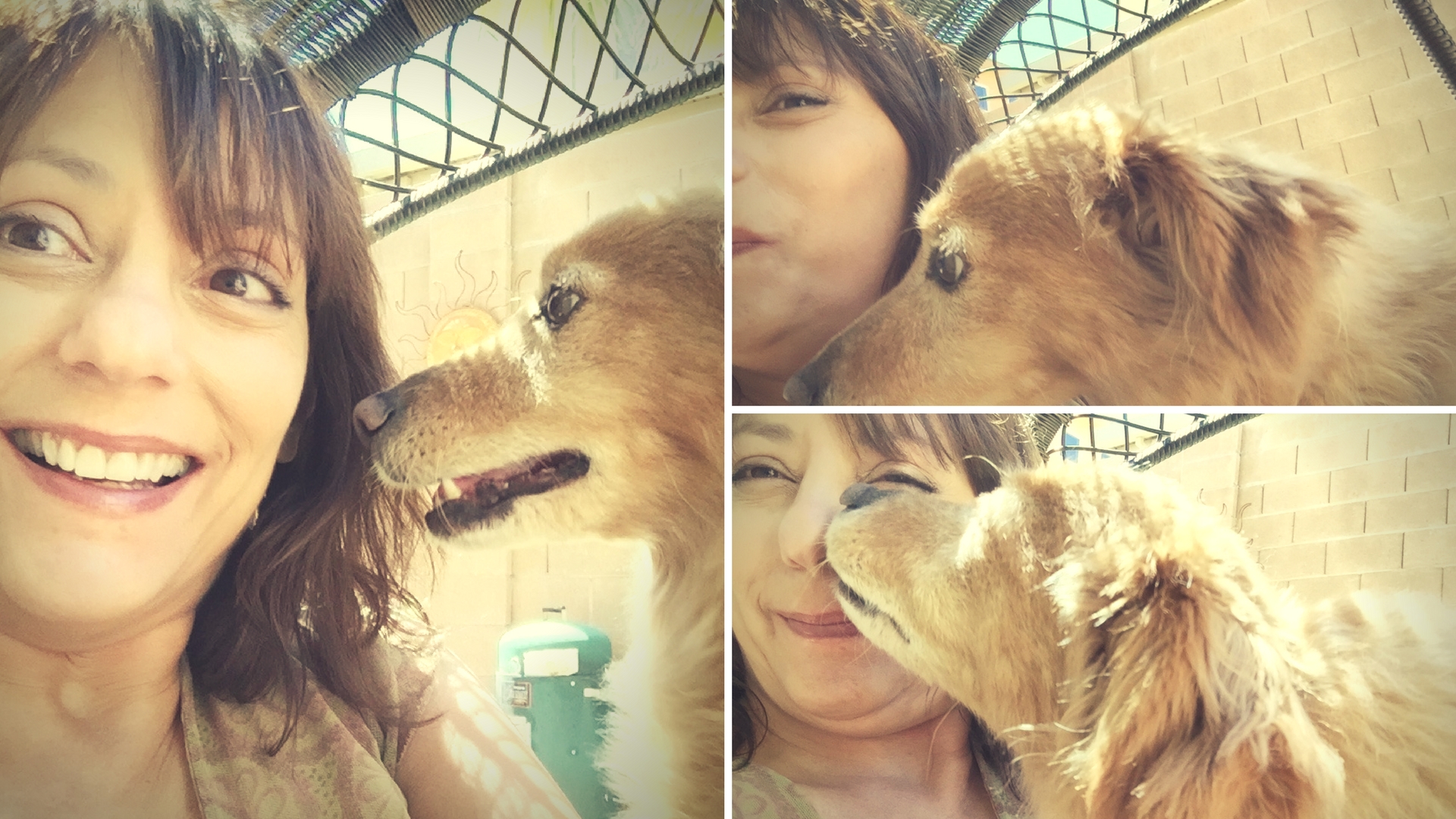You may have heard that diets don’t work,1 and that intuitive eating is an alternative. But just what is intuitive eating?
In short, it’s about building trust in your body to know what, when, and how much to eat. Sounds simple, right? But simple is not always easy, because so many of our beliefs around food are learned within a diet-crazy culture. Therefore, there are a lot of misunderstandings out there about this nondiet approach. So here’s an introduction to intuitive eating and its benefits.

What is Intuitive Eating?
Intuitive eating is an alternative to traditional weight loss prescriptions and meal plans. It helps you become the expert of your own body and experience by tuning in to your body’s cues, and removing judgment from eating.
As health professionals, registered dietitians Evelyn Tribole and Elyse Resch found that their clients often struggled after their work together ended. Clients would have short term success, but then have difficulty sticking to their eating plans. They did not maintain health improvements, and frequently regained weight. Typically, the clients blamed themselves for their lack of long-term outcomes. (Sound familiar? Most dieters know that feeling.) In response, Tribole and Resch developed intuitive eating as a new approach to fill in the gaps where the traditional approach fails us.
Intuitive eating helps you step away from diet culture’s rules, which scream at you to control yourself, even while you struggle to maintain that control.
In other words, if you want to be more in control of your eating, the answer is: stop trying to be in control. The idea of control leads to a whole lotta white-knuckling it around so-called naughty foods. Instead, intuitive eating puts you in charge of your eating. It might seem like splitting hairs, but striving to be “in control” smacks of strictness, micromanaging, and rigidity. It’s forcing yourself to toe the line, based on external rules. And who wants to be forced to do something? Nobody, that’s who – even if it’s you trying to force yourself.
[click_to_tweet tweet=”In other words, if you want to be more in control of your eating, the answer is: stop trying to be in control. The idea of control leads to a whole lotta white-knuckling it around so-called naughty foods.” quote=”In other words, if you want to be more in control of your eating, the answer is: stop trying to be in control. The idea of control leads to a whole lotta white-knuckling it around so-called naughty foods.” theme=”style5″]
On the other hand, being “in charge” means you are your own leader, making decisions for yourself that are fair. These decisions come from a place of internal self-care and nurturance.
And the first rule of intuitive eating is…
Just kidding. There are no rules. And that alone is likely to strike terror in the hearts of long-term dieters.
So no rules – but there are ten principles. If you are a gold-star perfectionist, remember that these are principles, not rules. They are guidelines, meant to steer you in the right direction. But you do not lose points with the universe if you don’t follow every one perfectly. In fact, as long as you are attempting to tune into yourself, you can only do intuitive eating right.
The Ten Principles of Intuitive Eating
1. Reject the Diet Mentality
Diets offer false hope of fast and permanent weight loss. They are structured to make you blame yourself when they don’t work as promised. And hanging onto the idea that there’s a new, improved diet out there will keep you stuck in a cycle of restriction, guilt, overeating, and weight regain. The whole system of dieting – diet culture – is rampant. Can you go through even one day without hearing somebody talking about quick weight loss, or “eat this! not that!”? Probably not.
2. Honor Your Hunger
Hunger is your body’s way of communicating that it needs nourishment. Keeping your body adequately fed is crucial to heal your relationship with food. If you’re a long-term dieter, you’re chronically underfeeding yourself. The result? Overeating that seems beyond your control. Tribole and Resch refer to this as a “primal drive to overeat.” When you understand this principle, you can see that your love-fests with Ben and Jerry are not a moral failing, but a result of not consistently providing your body with food.
3. Make Peace with Food
With the exceptions of food allergies and the like, give yourself unconditional permission to eat any food. No foods are off-limits. Really. Worried that if you allow yourself a single bite of pasta you won’t be able to stop? That’s an indication that you haven’t internalized this principle. When you are faced with your “trigger foods” you are likely physically restricting that food, psychologically restricting, or both.
Counterintuitively, the more you allow yourself to eat any food, the less likely you’ll overeat it. However, it can take some time for your body to learn that certain foods are no longer being restricted. At that point, that particular food stops having power over you.
If some foods continue to have an outsized hold over you, it is very likely you are still restricting in some way. You may eat a food but limiting the portion size (physical restriction). Or you may be psychologically restricting a food, by telling yourself something like “This is so bad for me” even as you eat it.
And when food no longer has power over you, you might be surprised to find out that some of those tempting foods don’t even taste good. (I’m looking at you, Twinkies.)
4. Challenge the Food Police
Don’t eat after 7 pm! Don’t eat anything white! Don’t eat between meals!
Those diet rules may have been taught to you by a well-meaning fitness trainer, or you read it in an article. But those rules get internalized as your very own Food Police. Start challenging them to loosen their hold.
5. Feel Your Fullness
Can you tell when you’re ravenously hungry? How about sort of hungry? How about comfortably full? My clients often tell me that identifying when they are starting to get full is difficult. This is often because they’re following external rules about when to eat and how much to eat.
When you diet, you are eating on someone else’s schedule, and eating portions decided by someone else. That makes it hard to identify internal cues of fullness. Typically, diet-sized portions are not large enough to fill you up. Therefore, there’s little practice with what “comfortably full” feels like.
On the other hand, “cheat days” encourage you to overeat. Whenever there are triggering events where you figure, “What the heck, I’ve blown it. I’ll just start fresh tomorrow Monday,” you are likely to overshoot your fullness levels to the point of discomfort.
This principle is often tied closely to giving yourself unconditional permission to eat. If you are internally telling yourself a food is “bad,” then you are more likely to tune out your physical sensations. Instead, your mind is likely to be doing mental gymnastics about how you will atone for your culinary sins. Far too often, this shows up as “I’ll just eat all of this and get it out of my system so I can do better tomorrow.”
6. Discover the Satisfaction Factor
So far, the principles of intuitive eating include Honor Your Hunger and Feel Your Fullness. This is where it’s easy to stop, and turn this powerful approach into “The Hunger-Fullness Diet.” But beyond increasing awareness of hunger and fullness, intuitive eating embraces the fact that food provides pleasure.
Pleasure? Yup. Food is fuel, for sure – but it’s also enjoyable. When you eat foods that are satisfying, you may eat less, because the whole experience is more enjoyable. Because while you can fill your stomach with any food: broccoli, protein shakes, plain chicken breast, etc., satisfaction is paramount. When you don’t eat food that appeals to you, you are more likely to cabinet-surf afterwards.

7. Cope with Your Emotions without Using Food
One of the top complaints I hear from distressed clients is “I’m an emotional eater!” It’s no wonder that emotional eating gets a bad rap. A quick Google search shows results with the message that emotional eating is bad, and should be stopped ASAP.
As a therapist, I take a slightly different approach: emotional eating isn’t negative in and of itself. There are certainly more detrimental choices people make when trying to cope with or avoid feeling their emotions. And honestly, all eating has an emotional component. From the moment we are born, eating is connected to comfort and closeness to another person. So the goal is not to completely eliminate the emotional component of eating.
However, it is crucial to look at the context and degree of your emotional eating. Is turning to food your only or main coping mechanism? Is it happening daily? Is it interfering with your ability to identify and sit with your emotions? Is it used to numb out from dealing from real issues? Then it’s worth learning more ways to cope with difficult feelings or situations. Because no amount of pizza will improve your relationship with your mom.
8. Respect Your Body
Despite glossy magazines and Instagram posts touting the latest and greatest ways to change your body, much our physical characteristics – including weight – are individual and relatively inflexible. Our body weight, as it turns out, is highly heritable. And to a lesser extent, how we feel about our bodies is also heritable. Therefore, wishing for and working towards a different body will only frustrate and disappoint you in the long run.
Instead, shift your focus to respecting the one body you’ll ever have. In the Intuitive Eating book, Tribole and Resch state, “Respecting your body means treating it with dignity and meeting its basic needs.” ALL bodies deserve respect and care, no matter what. You don’t have to love your body (although it’s fantastic if you can get there). Just start with respecting it, and everything it does for you on a day-to-day basis. This shift will make all the other principles of intuitive eating come more easily
9. Exercise – Feel the Difference
Which is the best exercise: running, or riding a bike? Actually, that’s a trick question. The best exercise is the kind you enjoy. Far too often, people have a negative connotation of exercise, and therefore don’t incorporate it into their lives. Maybe it’s a sour taste towards exercise left from junior-high PE class. Or maybe it’s that so often exercise is paired with dieting, which, as already mentioned, is usually unsuccessful long-term. Even if you are an ardent exerciser, check in with your experience. Do you enjoy the activities you pursue? Or is your exercise too often seen as a (potentially punishing) way to atone for food sins?
Just like with eating, exercise is best approached intuitively. Find activities you enjoy, even if they aren’t traditional sports or gym workouts. Gardening, dancing, and playing with your dog all count. Enjoyable exercise is stress-relieving, and a form of self-care. And when it is no longer shackled to weight loss expectations,
10. Honor Your Health with Gentle Nutrition
One of the biggest myths about intuitive eating is that nutrition is thrown out the window This is absolutely not true! Unfortunately, though, nutrition knowledge is too often used within the diet/weight loss industry to fearmonger. Rigidity around food choices, even if based on sound nutritional research, is likely to result in anxiety over what is eaten. It also tends to result in overeating and even bingeing. This principle is deliberately the last one. Focusing first on the above principles, to heal your relationship with food, puts you in a better position to appropriately incorporate nutrition information into your eating choices. If the nutrition piece is added too soon it is likely to be stuck in diet mentality, rather than respectful self-care.
________________________________________
So once again, what is intuitive eating? At its core, intuitive eating emphasizes learning to trust your body’s wisdom. I should say, it’s about relearning to trust your body’s wisdom, because we are all born as intuitive eaters. Every watch a tiny kid eat? They absolutely know when they are hungry and when they are full. Intuitive eating helps us get back there, where we are in touch with our body’s internal cues, and eating does not provoke guilt.
It is about repairing your relationship with food. It is weight neutral, meaning that it is focused on changing beliefs, attitudes, and behaviors. Weight is none of those.
Why Intuitive Eating Is Important
One of the biggest myths about intuitive eating is that it is giving up on yourself. That you’d just sit on the couch 24/7, snarfing down gallons of ice cream and Ding Dongs. Nothing could be further from the truth.
As the ten principles outlined above indicate, the approach is based on really tuning in to the needs of your body and mind. When you are first learning about and implementing intuitive eating, though, it can feel difficult to grasp. Be patient. Years of diet mentality takes time to unlearn.
However, it’s well worth it. Intuitive eating runs counter to everything diet culture teaches. But with a growing body of research, there are multiple benefits associated with intuitive eating:
- reduced overeating
- fewer eating disorder behaviors and disordered eating
- decreased binge eating
- decreased BMI (NOTE: Intuitive eating is not a tool to lose weight. However, healing your relationship with food tends to reduce weight cycling and long-term weight gain.)
- more intrinsic motivation to engage in physical activity for enjoyment
- reduced risk of heart disease
- improved metabolic fitness
- higher self esteem
- decreased depression and anxiety
- increased life satisfaction
- increased body satisfaction
- greater enjoyment of eating
And from my own personal and professional experience, engaging in intuitive eating leads to:
- less guilt around food. This means being able to have boxes of cookies around that – surprise! – don’t get eaten in one sitting.
- improved body image
- more emotional energy/headspace to focus on the rest of life
- greater ability to deal with emotions directly, instead of habitually numbing out with food
Sounds great, right? The next post in this series will address how to get started as an intuitive eater.
1 Studies show that most people who lose weight on a diet regain all the weight they lost, plus more. See Traci Mann et el. (2007). Medicare’s search for effective obesity treatments: Diets are not the answer. American Psychologist, 62(3), 220-233.






